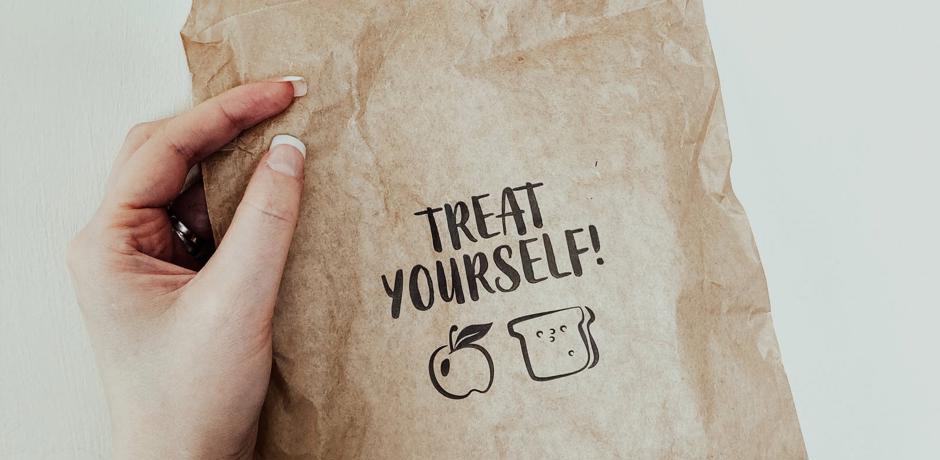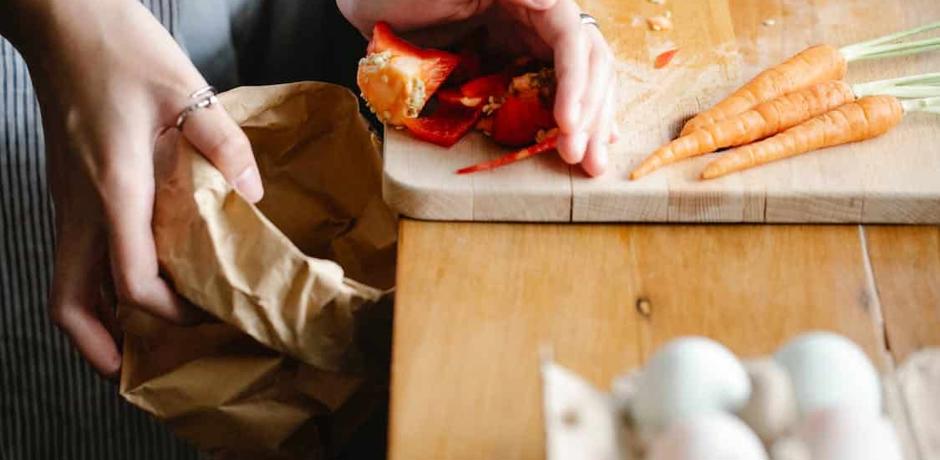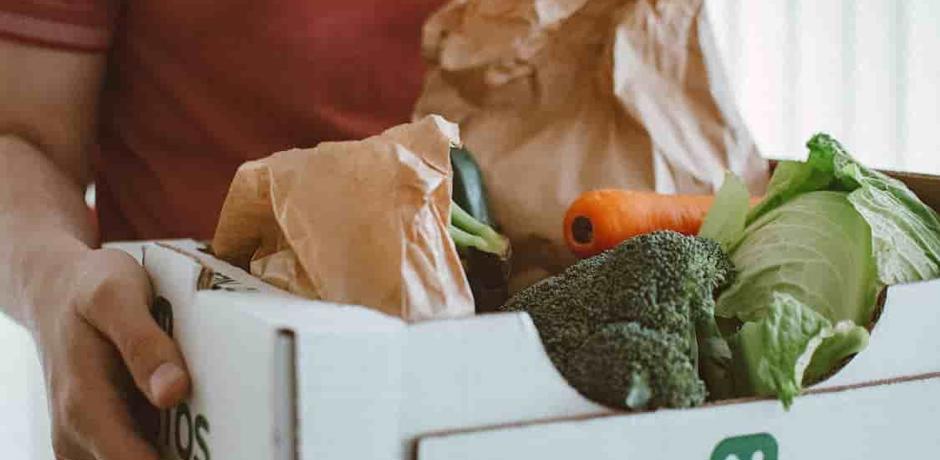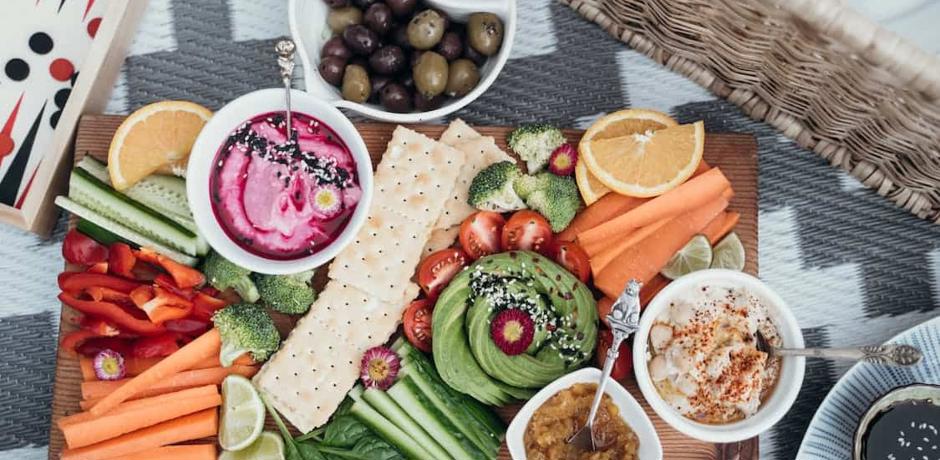The Road to Sustainability in Restaurants
Stay informed with industry news, tips, and practical guides for hospitality professionals.
How having a sustainable mindset when running your business can benefit not only the planet, but also your profit margins and reputation.
Sustainable living is all about being aware of our actions and lifestyle choices, and understanding the impact they have on the world and environment around us.
There are many ways in which we can live a sustainable life personally, and it is just as (or even more) important as restaurants, cafes, bars and hotels that we too are doing our part to be eco friendly.
What are the benefits of restaurant sustainability?
Not only are you doing your bit for the planet, but being known as a sustainable restaurant does wonderful things for your business - including growing your business with loyal customers who make a conscious choice to dine with you, as they know they're making an environmentally friendly decision.

Client Showcase: Social Pantry
One of our Opsyte clients who have really hit the nail on the head with all things sustainability is Social Pantry!
Founded by Alex Head in 2011, Social Pantry cater for bespoke events, as well as having their own restaurant and cafes. Throughout this blog I will be referring towards Social Pantry and their sustainability policy, to showcase the fantastic work they are doing and hopefully inspire you to think green and change something within your own hospitality business, big or small.
"We believe that a fresh, local, seasonal approach to food is the most sustainable, benefitting people and planet. Our kitchen culture nurtures innovation and encourages a zero-waste mindset that allows us to get the most from our ingredients. Food waste, plastic use, and disposable items are hugely important items to tackle in our industry, however in 2022 with the third instalment of the IPCC Report being released, it is essential that we go further."

Time to ditch (recycle) the plastic packaging!
It is well known that plastics takes thousands of years to biodegrade, and even when they do, they degrade into tiny microplastics which pollute our land and water - this is not even mentioning the amount of carbon dioxide released during the production.
We have taken a step in the right direction with recyclable plastics, however sadly even a large proportion of these end up in land fill!
With help from the government with plastic packaging tax, most companies have made the switch to sustainable packaging. For most places this is as simple as paper or card packaging, however we are now seeing more and more compostable packing made from plants and recycled materials.
Customers don't want plastic packaging!
According to PackagingNews.co.uk: "70% of respondents stated that they are actively taking steps to reduce their use of plastic packaging, while 46% of respondents said that they now buy more from retailers who are removing plastic from their packaging. Additionally, 48% of consumers would avoid retailers that are not actively trying to reduce their use of non-recyclable plastic packaging".
Social Pantry are on a mission to phase out plastic.
"Across our events and sites, we offer all of our drinks in cans or bottles and encourage the use of reusable cups with discount incentives. We are also trying to eliminate non-recyclable plastic from our operations."

Food Waste
There are many factors to be considered with reducing food waste, and many benefits that follow the reduction of food waste.
In most places when food goes in the bin it goes straight to landfill, and sadly landfill prevents food waste from decomposing as there is a barrier between the food and the earth. This then causes the food to rot, producing harmful methane gas into the environment.
Reducing food waste is not only better for the environment, but also a direct and easy way of saving money via cost of sales. It's vital as restaurants, hotels, cafés, or any hospitality business, that you know your PAR (Periodic Automatic Replenishment) levels, especially regarding prepped/ fresh food.
Getting this right could be the difference between meeting your profit targets or not but also means less food going directly in the bin and the end of the night.
food waste bins
Something so simple can be massively impactful. Get in contact with your council or waste management services regarding a food waste bin! Any scraps, customer left overs or out of date food can go directly in the bin to be disposed of correctly in a way that wont harm the environment.
Don't bin edible food
This really is a win win situation. It is common place that restaurants have prepped food items that need to be discarded at the end of the day, or "best before" food that cannot be sold the following day.
We are incredibly lucky to have so many options for what to do with all this edible waste! OddBox.co.uk have listed 7 wonderful options on their page, all of which either take the edible food to people in need or give you to option to sell on this edible food at a discounted price!
Social Pantry have a Zero Waste Mindset.
"As a business, we try to follow the principles of the 5R's of Zero Waste: Refuse, Reduce, Reuse, Recycle, Rot.
FOOD DONATIONS: We work with charities such as FareShare, The Felix Project & City Harvest to redistribute and reuse any surplus food.
FERMENTING: We’re big fans of using fermentation to extend the life of fresh produce, increases its nutritional value and also add flavour and contrast to a dish. It’s a natural, sustainable alternative to aggressive chemical processes!
COFFEE DONATIONS: We donate used coffee grounds for various uses, including UpCircle Beauty skincare products, and to a local wormery
ALL THE TRIMMINGS: Getting creative with ingredients saved and stored from other Social Pantry sites means our chefs reuse vegetable, fruit and herb trimmings, animal fats, stale bread, and seasonal gluts in dishes. Initiatives such as nose-to-tail and root-to-stem are also incorporated across many of our menus.
SUPPLIER COLLABS: We pride ourselves on building long-lasting relationships with our suppliers and we're now helping to repurpose their waste ingredients. Keep an eye out for Cocoa Husks from Pump Street Chocolate hitting our menus very soon!"

Source Locally
One of the wonderful things about hospitality in todays world is that no matter what time of year it is, you have access to fresh produce. This is however an environmental downside.
Despite the luxury of this access, food from across the world has incredibly high food mileage.
Food mileage is all about the distance the food item has travelled from production to consumer. Simply put, the higher the food mileage, the more fuel and emissions are released into the environment.
What can your business do about it?
The clear answer is to source locally!
Put some research into where your food is grown or produced. Have seasonal menus that appropriately change with the seasons, so that you're not having to source far and wide for some "decent strawberries" in the middle of December.
The great news here is that your guests will love it too. Varying your menu with the seasons is a fantastic way to keep people coming back - as we approach Autumn, there's nothing quite like hearty locally sourced meals to set the autumnal atmosphere consumers love.
Fresh, Local and Seasonal foods are really at the heart of Social Pantry.
"If we source our produce locally, there are a huge number of benefits, for us, our communities, and for the planet. Supporting local agriculture and industry is essential to ensuring we have access to food we need without needing to import. We are incredibly lucky to live in a country that has all four seasons, and has land that is appropriate for farming. Our definition of local in this context doesn't necessarily mean eating food produced within a few miles. It tends to mean food produced in our country, or at a push, a neighbouring one. We try to find the next best thing and look to neighbouring countries that are still conscious of our food miles, and therefore our carbon footprint."
"Seasonal food is fresher, and by definition should really be local too. By eating seasonally, this should make it cheaper to buy produce too. Our chefs also use fermenting techniques to extend the lifetime of certain hyper-seasonal produce e.g. Wild Garlic. We work hard to be rigorous when checking the provenance of what we're using. We ensure we're buying Fairtrade, slavery-free, and high welfare. When food is not produced seasonally, it is artificially ripened, which has nutritional implications, as well as causing damage to the environment, and the people involved in the systems producing our food."

Up the Vegan and Vegetarian options
You don't have to be vegan to appreciate a delicious vegan or vegetarian meal. Not only is meat an expensive ingredient, but according to SkepticalScience.com "animal agriculture is the the fourth largest contributor accounting for 11% of greenhouse gas (GHG) emissions".
So less meat dishes is not only good for saving you a bit of money but helps the planet at the same time.
If veggie options really aren't for you, you could cut down on the beef and lamb dishes as those two meats create more emissions and other negative environmental factors compared to other meats.
Other steps Social Pantry are taking to Go "Green"
"Our dedicated sustainability consultant stays close to what we are doing as a business and ensures best practices are met across our operations. This is a big area of growth for us and we'll be looking to “green” our operations throughout so we can seek accreditation.
BOYCOTTING AVOS: Last year we made the decision to phase out the use of avocados across our entire business and no longer feature on our menus. By taking these steps, we're not only limiting our impact on the environment but also positioning ourselves as a voice within our industry and beyond to influence change on a much larger scale.
TRAINING: We provide all staff with ongoing sustainability training + team-building activities. This includes foraging trips and taking part in quarterly beach cleans along the Thames.
CLOSED LOOP: We're always looking for ways to 'close the loop' and have introduced systems across the business including refill toiletries, laundering services as well as décor & crockery hire.
ACCREDITATION: Under the supervision of our sustainability consultant, we have started the process of becoming accredited with ISO 14001 and B. Corporation."
Social Pantry and where to find them:
https://socialpantry.co.uk/
Enquiries: https://socialpantry.co.uk/enquiries/
Instagram: social_pantry
LinkedIn: https://www.linkedin.com/company/social-pantry/
Twitter: @social_pantry
Other References.
PackingNews.co.uk: https://www.packagingnews.co.uk/news/environment/recycling/study-finds-strong-support-paper-packaging-european-consumers-08-06-2020
OddBox.co.uk: https://www.oddbox.co.uk/blog/7-apps-that-are-helping-reduce-food-waste
SkepticalScience.com: https://skepticalscience.com/animal-agriculture-meat-global-warming.htm
Ready to simplify hospitality ops?
We’ve got you.
Speak with an Opsyte expert to see how we help:
- Save hours on staff scheduling and rota planning
- Automate invoice processing and financial insights
- Track live labour costs vs sales in real-time
- Get fast answers and support from real humans
- Automate your P&Ls

“Opsyte transformed our entire back office. Game changer.”
Read articles from our hospitality experts
-
Leveraging Hospitality App Development: The Future of Hotel and Restaurant Management in the Mobile Era
Hospitality App Development: A Game Changer for UK Hospitality IndustryIn the dynamic digital landscape, the hospitality industry is continually evolving, and the demand for innovative technology solutions, particularly mobile apps,…...
-
Boosting Employee Satisfaction: The Impact of Implementing a Living Wage in the Hospitality Industry
The Impact of the Living Wage on the UK Hospitality IndustryThe UK hospitality industry has been at the forefront of numerous discussions on wage standards, compensation, and labor rights. One…...
-
Boost Your Bar Sales: Creative Drink Promotions and Marketing Ideas for the Hospitality Industry
Revitalising Hospitality: Innovative Drink Promotions Ideas for SuccessThe UK hospitality sector, with its vibrant nightlife, lively pubs, and eclectic restaurants, thrives on creativity and innovation. One key to success in…...
-
Boost Your Bar Business: Innovative Marketing Strategies and Promotion Ideas for the Hospitality Industry
Revolutionising Bar Marketing: Innovative Strategies to Boost Your BusinessIn the bustling landscape of the UK hospitality industry, staying ahead of the competition is pivotal. One sector where this rings particularly…...
-
Maximising Your Profit Margin: Effective Strategies for Increasing Restaurant Profits and Ensuring Financial Success Through Cost Management and Enhanced Operations
Maximising Restaurant Profitability: Strategies for SuccessIn the competitive UK hospitality sector, the ability to increase restaurant profits and maximise restaurant revenue is a critical determinant of success. Many factors contribute…...
-
Leveraging Restaurant Invoice Software: The Ultimate Guide to Streamlining Your Billing and Management Systems
Optimising Hospitality Operations with Restaurant Invoice SoftwareIn the ever-evolving hospitality industry, the need for efficient and effective management systems is paramount. One of the areas that demands meticulous attention is…...
